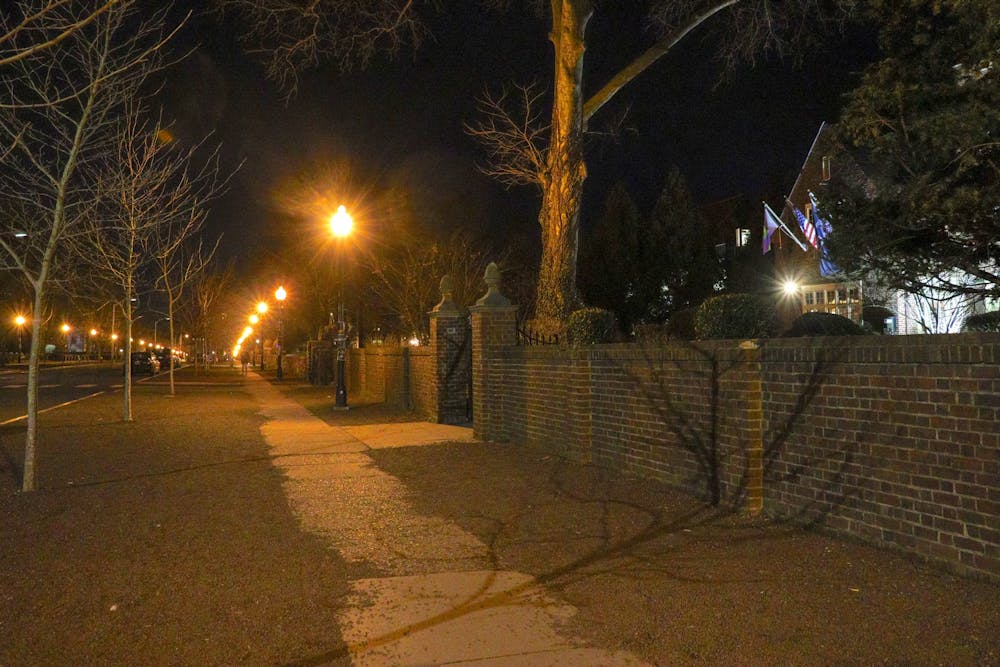At the end of Street Week 2023, 633 students were offered spots in bicker clubs, the largest bicker class this millennium. At least three of six bicker clubs had their lowest acceptance rates since at least 2001. Ivy and Tower Clubs welcomed their largest incoming classes in twenty years of analyzed data, with 87 and 141 new members, respectively.
Based on numbers provided by emails sent to incoming members and conversations with club members, the ‘Prince’ analyzed Street Week 2023 statistics, finding the number of students placed at each club and the split between incoming sophomores and juniors. The ‘Prince’ collected data on bicker and sign-in admissions since 2000 to analyze trends in membership and selectivity over time.
Decreasing acceptance rates for eating clubs and rising class sizes are of specific concern given the University’s commitment to increase the Princeton class size by 150 every year until Hobson College opens. Clubs are also being asked to participate in the university’s upperclass dining pilot, which may further strain the capacity of some clubs.
Based on the data available, a total of 1,149 Princeton students were placed into eating clubs during Street Week 2023. Using an estimate based on eight clubs, about 93 percent of the students placed in a club were sophomores, suggesting around 1,068, in line with the 1,070 sophomores that participated last year, according to the Interclub Council (ICC).
The ‘Prince’ reached out to officer teams at every Eating Club, along with the ICC. With the exception of the officers at Cannon Dial Elm Club, no officer teams responded by publication time.
2022 and 2023 both saw historically large classes of students seeking to join the eating clubs. The rise in students seeking to join an eating club between 2020 and 2023 was almost entirely absorbed by bicker clubs. In 2020, 565 students were accepted to a bicker club, which is the last year for which bicker data for all clubs was available and bicker was in person. Of the 633 students accepted to a bicker club this year, about 600 were sophomores. About 516 students were offered spots in the five sign-in clubs, similar to the 521 extended admission in 2020, the last year for which data is available for all sign-in clubs.
Street Week took place between Feb. 5–7, as hundreds of undergraduates flocked to the eating clubs along Prospect Avenue for multiple nights of group conversations, games, and one-on-ones.
Students had until Thursday, Feb. 9 at 8 p.m. to rank their club preferences. Mysteriously, the portal reopened after the deadline to allow students to change their preferences. The ranking window then closed again at midnight. No communication was sent to bickerees concerning the reopening and there’s no indication of how many students changed their preferences.
“It was good to meet a lot of new people, that was probably the positive of it,” James Kontulis ’25, who bickered TI and Cottage, said in an interview with the ‘Prince.’ “But I was pretty stressed out the whole week. It’s hard to try and sell yourself.”

Among bicker clubs, Tower accepted the most new members, with 141 new members, including ten juniors and one senior. Tower has had the largest incoming class of the bicker clubs every year since 2003, with the exception of 2012, Cannon Dial Elm’s inaugural bicker cycle. Tower members shared with the ‘Prince’ that 232 bickerees signed up on the ICC website, compared to 273 students who bickered Tower in 2022. While 232 signed up to bicker Tower, members shared that only about 170 bickerees were voted on during discussions. This yields an acceptance rate this year of 60.8 percent, significantly higher than the 2022 rate of 48.7 percent. Tower had its highest acceptance rate since 2018 and its largest incoming class since at least 2001.
Tiger Inn (TI) had 296 bickerees and accepted 87, yielding an acceptance rate of 29.4 percent. This represents a marked increase in TI’s bicker class, up from 240 bickerees in 2022 and a decrease in acceptance rate, down from 35.8 percent in 2022.
According to Joshua Coan ’24, president of Cannon Dial Elm Club, Cannon had 193 bickerees and accepted 123 new members, up from 81 in 2022. This yields an acceptance rate of 63.7%, much higher than the 50.6% they accepted last year and their highest acceptance rate since 2014.
358 sophomores bickered Cap and Gown, and 105 were accepted. Both the number of bickerees and admits were down from 2022, when Cap had 372 bickerees and accepted 113. The slight drop in bickerees may be explained by Cap choosing to not allow juniors to bicker this spring, a change since 2022. Cap’s acceptance rate this year was 29.3 percent, similar to the 2022 rate of 30.4 percent; nonetheless, it was Cap’s lowest acceptance rate since at least 2001.
Cottage accepted 90 students, 87 of whom were sophomores. This is down from 2020, the last year in which data was available and bicker was in person, when they accepted 95. While Cottage did not officially release the number of people who bickered the club, according to multiple club members, Cottage saw about 270 bickerees this year. This would represent Cottage’s largest bicker class and result in a 33.3 percent acceptance rate, the lowest since 2001.
Ivy accepted 87 students, its largest class since at least 2001. In the last 22 years, Ivy has never accepted more than 74 new members. In 2022, Ivy accepted 73 students. Out of Ivy’s 87 admits this year, 81 were sophomores.
This increased class size is a departure from Ivy’s previous practice of keeping its intake small to foster a close-knit community. In 2016, former Ivy Bicker Chair Michael Moorin ’16 told the ‘Prince’ “We believe Ivy’s small membership is core to its identity.”
The ‘Prince’ was unable to obtain the number of students who bickered Ivy. Students with knowledge of the process speculated that the number exceeded 300.
The ‘Prince’ also obtained data on how many people were placed into each sign-in club.
Charter welcomed 102 new members to the club, in line with the 110 it accepted in 2022. Charter is the only eating club to use a selective sign-in process that awards points to prospective members for demonstrating interest in the club, such as attending events and having coffee chats with current members.
Charter’s admissions process was markedly more competitive than in previous years. Based on the point values and eating club placements of several members who ranked Charter first, the ‘Prince’ estimated that the cutoff for admission to Charter was about seven points. Using this estimate, anyone with fewer than seven points, or who ranked Charter second or below, was not offered membership in the club.
“I wish the process could have been more transparent or guaranteed because I just thought I had the process secured and not getting in has made me choose to be independent,” a sophomore who ranked Charter first and received six points wrote to the ‘Prince.’
“I didn’t think it was possible for me to not get in given the amount of points I had,” they added.
Charter’s competitive sign-in process in 2023 continues a trend of increasing popularity for the club. In light of declining membership, Charter opted to switch from sign-in to bicker in 2021, a plan that was eventually dropped. Charter’s membership has since expanded while retaining its selective sign-in system. In 2020, Charter had only 28 total members when spring recruitment came around. That year, 127 students joined Charter, quintupling its membership.
Terrace welcomed 149 new members into the club, its largest incoming class since 2017, 130 of whom are sophomores. Terrace has admitted the largest class out of the sign-in clubs every year since 2009, with the exception of 2020, when Charter and Quadrangle were more popular. Cloister offered spots to 86 new members, the most since 2014, 71 of whom are sophomores. Conversely, Colonial offered spots to about 70 new members, according to members with knowledge of the process, the lowest of any year analyzed since 2010. Quadrangle offered spots to 109 new members, similar to the 121 it welcomed in 2020, the last year for which data is available.
Students can still join sign-in clubs that have not yet reached capacity until 9:00 a.m. on Feb. 28 through the ICC website. At the time of publication, Cloister Inn, Colonial, Quadrangle, and Terrace Clubs are still accepting applications for rolling admission.
Ryan Konarska is an Assistant Data Editor for the ‘Prince.’
Lia Opperman is the Investigations Editor and an Associate News Editor for the ‘Prince.’
Please send any corrections to corrections[at]dailyprincetonian.com.








